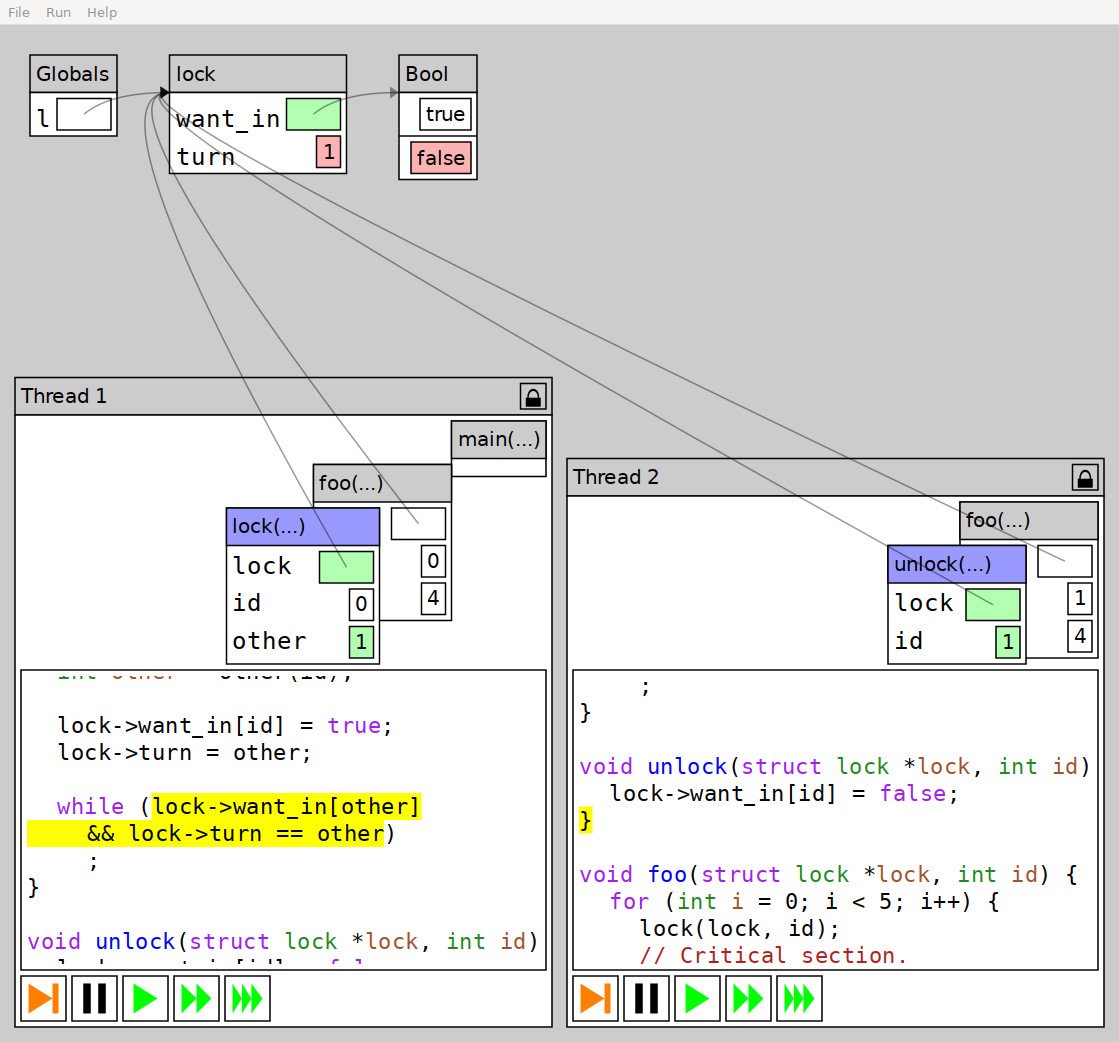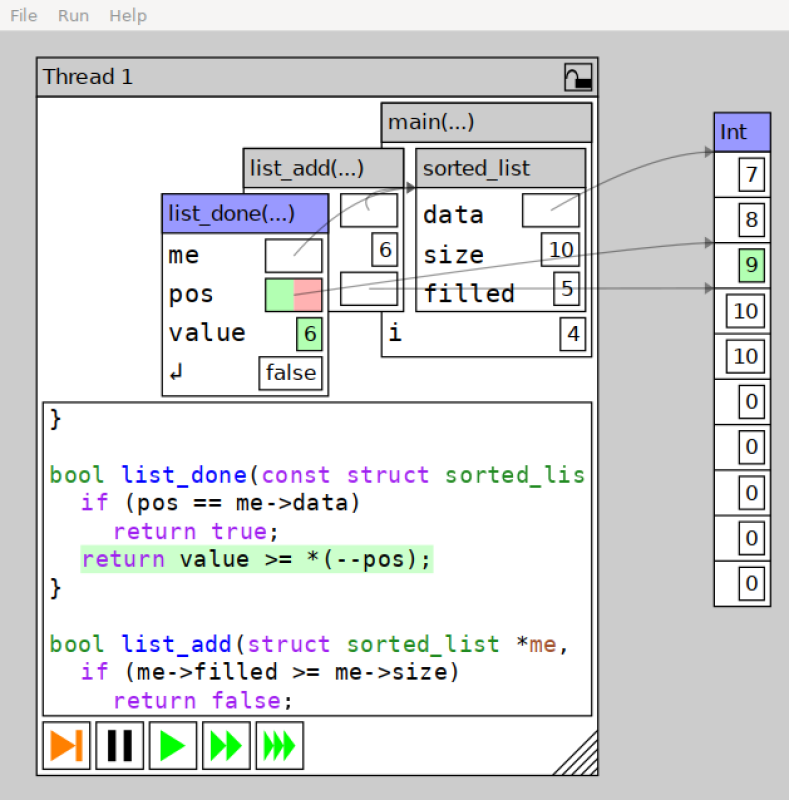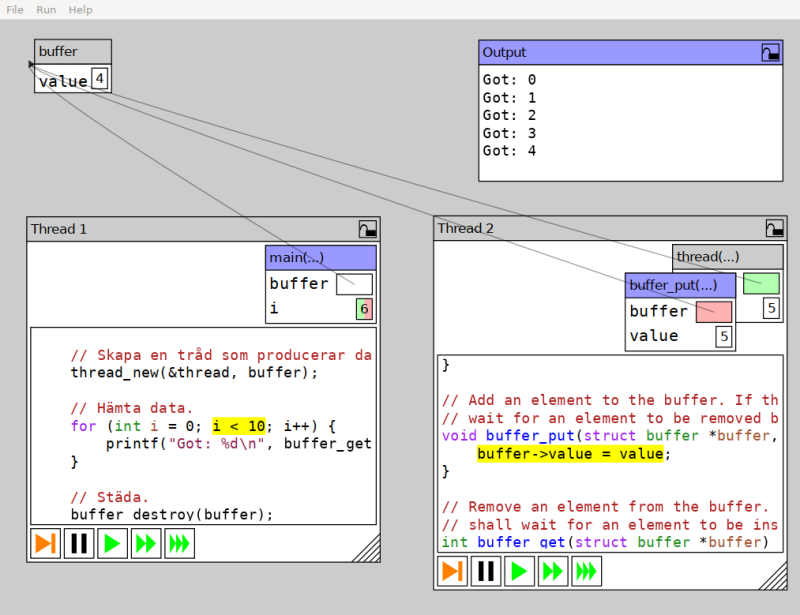Progvis — Now in Debian proper! (unstable)
Progvis finally made it into Debian! What is it, you ask? It is a great tool to teach about memory management and concurrency.
I first saw progvis in the poster presentation his author, Filip Strömbäck, did last year at the 52nd ACM Technical Sympossium on Computer Science Education (SIGCSE), immediately recognizing it as a tool I wanted to use at my classes, and being it free software, make it available for all interested Debian users. Quoting from Progvis’ Web page:
This is a program visualization tool aimed at concurrent programs and related issues. The tool itself is mostly language agnostic, and relies on Storm to compile the provided code and provide basic debug information. The generated code is then inspected and instrumented to provide an experience similar to a basic debugger. The tool emphasizes a visual representation of the object hierarchy that is manipulated by the executed program to make it easy to understand how it looks. In particular, a visual representation is beneficial over a text representation since it makes it easier to find shared data that might need to be synchronized in a concurrent program.
As mentioned, the tool is aimed at concurrent programs. Therefore, it allows spawning multiple threads running the same program to see if that affects the program’s execution (this is mostly interesting if global variables are used). Furthermore, any spawned threads also appear in the tool, and the user may control them independently to explore possible race conditions or other synchronization errors. If enabled from the menu bar, the tool keeps track of reads and writes to the data structure in order to highlight basic race conditions in addition to deadlocks.

So, what is this Storm thing? Filip promptly informed me that Progvis is not just a pedagogical tool… Or rather, that it is part of something bigger. Progvis is a program built using the Storm programming language platform is more than a compiler; it presents as a framework for creating languages, designed to make easy to implement languages that can be extended with new syntax and semantics. Storm is much more than what I have explored, and can be used as an interactive compiler, a language server used as a service for highlighting and completing in IDEs. But I won’t dig much more into Storm (which is, of course, now also available in Debian as well as the libraries built from the same source).
Back to progvis: It implements a very-close-to-C++ language, with some
details to better suit its purpose (i.e. instead of using the usual
pthread implementation, an own thread model is used; i.e. thread
creation is handled via int thread_id = thread_name(funcname,
¶ms) instead of the more complex
pthread_create()
function (including details such as the thread object being passed as
by reference as a parameter)…
All in all, while I have not yet taken full advantage of this tool in my teaching, it has helped me show somewhat hard to grasp concepts such as:
-
Understanding pointers and indirection
-
How strings are handled
-
Heap allocation vs. stack allocation
-
Shared access to global data
All in all, a great tool. I hope you find it useful and enjoyable as well!
PS- I suggest you to install the progvis-examples package to get
started. You will find some dozens of sample programs in
/usr/share/doc/progvis-examples/examples; playing with them will
help you better understand the tool and be able to better write your
own programs.




